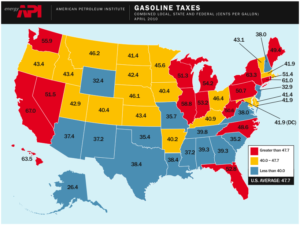 I had a run-in with the law this week.
I had a run-in with the law this week.
Well, it was not specifically I who did, and, it was more of a “walk-in” as opposed to a “run-in”.
But that statement was generally true.
If you are a regular reader of this website, you are aware that our oldest son is running a lemonade stand this week in our town in order to raise funds for his hockey season and additionally to raise funds for a friend of his whose family gives their time to help people in Tanzania. It’s really makes my heart smile to see him make this happen. Good on ya, Ian!
Apparently, it does not make every heart smile.
The Palmyra police department received a complaint (through which channels I am not completely certain) in regards to a presumably unlicensed vendor selling bottled water on the streets of Palmyra. A direct accusation was aimed at our son’s lemonade stand for perpetrating this offense. (Although he is neither selling bottled water, nor is he selling on the streets of Palmyra, if one were to be technical.) A police officer then followed up on this with Ian directly, politely (according to Ian) informing him that he must obtain a “peddler’s permit” immediately, or he would have to be shut down.
And this is where the fun began.
The Story Unfolds
Now stick with me. This obviously could be a very long and involved diatribe rant post, I have a very specific thought I’d like to present today. I do need to present a bit of background here, though.
When I was informed of this requirement that the office communicated to Ian, my first response was to double-check the regulations of the Village of Palmyra, just to be sure what was required of a temporary vendor, such as Ian.
I browsed section (§) 139, and found that Ian didn’t fit this “Peddler’s Permit” license requirement at all. That was odd, but I kept reading just to be sure. (AND, as I read, I discovered that there are very strict requirements on anyone seeking one of these “Peddler’s Permits”, including submitting to finger printing and criminal background checks. For a 14-year-old’s lemonade stand??? I thought, This can’t be true!! Thankfully, it was not.)
As I continued to read, I discovered that indeed there was a section (§139.17, Article II) pertaining to Ian’s lemonade stand, and his usage of the “sidewalk”, that portion of land between the curb and the sidewalk.
Ian and I reviewed the code, we discussed options—including fighting what we deemed a silly twenty-five dollar license fee—and figured with likely a vast majority of public support in his favor, we could probably bring attention to a pretty obvious case of over-regulation.
But, without much thought given to a “fight”, we decided the next thing to do was for me to go discuss what I had learned with the officer who had approached Ian about obtaining the license.
A brief stroll across the street (at the crosswalk, of course…) to our police station, and I was speaking with the same officer that had spoken with Ian. He was very gracious, understanding, and even fairly knowledgeable of the codes which I had just looked up and studied (impressive!). We spoke a bit about the complaint, the code/regulations, and both decided that it would be best to get a license, especially because, since Ian is raising money for a charity, there would be less cost involved.
OK, thanks for sticking with me this far. Now we’re to the point I really wanted to make.
 I walked next door to the Village Clerk’s office, which was then being manned (womanned?) by a friend of ours. She had heard of the alleged infraction, and knew of the license requirement, but like the officer and myself, shook her head at the enforcement of it in the case of a teenager’s lemonade stand.
I walked next door to the Village Clerk’s office, which was then being manned (womanned?) by a friend of ours. She had heard of the alleged infraction, and knew of the license requirement, but like the officer and myself, shook her head at the enforcement of it in the case of a teenager’s lemonade stand.
I showed her the papers in my hand: seven pages of §139 of the Village of Palmyra, NY codes, and we both laughed. But not a fun, that’s-so-funny-it-makes-me-happy kind of laugh. She later showed me the full book of the Village codes, laws, and regulations.
It was a large book. For a tiny town.
It’s really sad! And our little village is not alone. The laws in our towns, states, and our country are way, way beyond out of control.
A Year of Julbilee
And so, I propose something like you find in the book of Leviticus. Chapters twenty-five through twenty-seven.
God introduced to the Israelite people the idea of a Sabbath Year of Rest every seventh year. No planting or harvesting of crops, and some other cyclical downtimes for his people and their land.
In conjunction with this, after seven cycles of this six years on, six years off, the people would celebrate a Year of Jubilee. Every fiftieth year would be a reset. It meant the return of property to owners who had to sell it, freeing people from debts of servitude, and generally canceling any preexisting debt amongst the Israelite people—resetting to zero.
Fascinating, huh?
Thomas Jefferson Was a Smart Man
 If this worked for the Israelites (and it was God’s idea in the first place) then why wouldn’t it work for us, too?
If this worked for the Israelites (and it was God’s idea in the first place) then why wouldn’t it work for us, too?
Thomas Jefferson thought we should do something like this regularly, revisit our laws and constitutions. He really thought it. You can find quotes pertaining to this “reset” in many of his correspondences with different people.
For instance:
Every constitution, then, and every law, naturally expires at the end of nineteen years.1
But when a long train of abuses and usurpations, pursuing invariably the same object, evinces a design to reduce them under absolute despotism, it is their right, it is their duty, to throw off such government and to provide new guards for their future security.2
The tree of liberty must be refreshed from time to time with the blood of patriots & tyrants. It is it’s natural manure.3
There are more. Many more. Jefferson firmly believed that laws should not continue past one generation, which he determined to be nineteen years. He likened each generation of people to a sovereign nation. One nation can not impose its laws and government on another, neither should one generation bind another with laws which are not their own. (Please see the links at the end of this post.)
Bottom line: Sometimes you need to clear the books!
Think about crazy stuff like Michigan representative, John Conyers wondering aloud why he should have to read a thousand-page bill before passing it into law. (That bill was the now-passed Affordable Care Act.) Are we really OK with passing 1,000 more pages of regulations and codes and laws WITHOUT reading them? (Recall, too, that Senator Nancy Pelosi said that we’d have to pass the bill so that we could find out what was in it. Yikers!)
Could This Work Now?
My Palmyra neighbor, who is in a position of some authority here, cordially scoffed at the codes currently in place—primarily at the volume of codes in place. I think most of our other neighbors would agree.
Generally, I think most Americans could agree that our government is far too big and invasive. There are some who think the government should be providing many services to all Americans, paid for by monies collected through taxes, but even those people know that the red tape bureaucracy is out of control. No one can figure out how to pay their taxes, or can possibly know in advance all of the laws, codes, regulations, etc that are on our local, state, and federal “books”.
Maybe it’s time for a Year of Jubilee?
It’s way past time.
What Jefferson was referencing in his “tree of liberty” comment was a defense of a rebellion in the United States as an understandable occurrence. (Note: he was not calling for people to overthrow their own governments here.) Those rebelling were uninformed (or under-informed) and the government in place had taken too much authority over its people. Jefferson saw this as a natural course of events, necessary to preserving liberty—from both sides: the people and the government. Had the people not rebelled, it would have revealed a lethargy in the people (both to seek out information, and then to act upon it) which would signify the death of liberty among them.4
The biggest obstacle to this is what Jefferson also stated in our own Declaration:
“…all experience hath shown that mankind are more disposed to suffer while evils are sufferable than to right themselves by abolishing the forms to which they are accustomed.”
We are reticent to make change. And those in power are often actively hindering it, usually for their own benefit, not that of the general population.
So it may be very out of the ordinary—it might even be next to impossible—but Jefferson nearly insisted that it must be done.
And I wholeheartedly agree.
Resources for further study: (Please do!)
- Thomas Jefferson to James Madison, Sept. 6th, 1789. On rewriting laws/constitution for every generation.
- Thomas Jefferson to William S. Smith Paris, Nov. 13th, 1787. Regarding the “tree of liberty being watered by the blood of patriots and tyrants”. Full text.
- Shay’s Rebellion, referenced by Jefferson in his comments directly above (tree of liberty).
- Thomas Jefferson supported rewriting the Constitution every 19 years… article found on Newsvine.com by Student of Life.
- The Lost Tradition of Biblical Debt Cancellations by Michael Hudson. Long, but interesting.
- Jubilee at Wikipedia. More information on the history of the Year of Jubilee.
- From a letter to James Madison, sent September 6th, 1789. ↩
- The Declaration of Independence. ↩
- Thomas Jefferson, letter to William S. Smith Paris, November 13th, 1787. ↩
- Please read more of this letter. The whole thing in fact. It’s here. ↩

